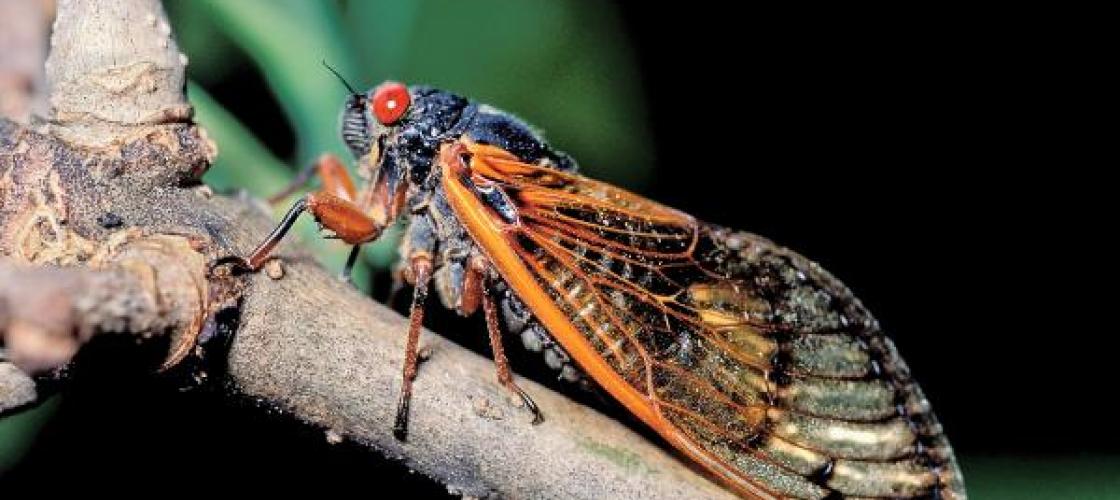Cicadas are stocky, bug-eyed insects that make that buzzing, pulsating noise on summer days. Cicada larvae (LARV-EYE) live in the soil and feed on plant roots. Adulthood amounts to a brief summer fling above ground –where they make noise, mate and lay eggs.
Periodical Cicadas emerge from the ground in very specific cycles. An entire population, or brood, all leave the ground during the same few weeks of the same summer. Their offspring won’t return to the surface until precisely 13 or 17 years later depending on the species.
The insects shed their skin as they emerge from the ground and you can see them on tree trunks and buildings.
The synchronized emergence of enormous numbers of cicadas helps them survive. Predators simply can’t put more than a dent into this windfall of prey.
This year we will see the 13-year Periodical Cicadas in southeastern Missouri and the 17-year Periodical Cicadas in the western part of the state. Learn more on the emergence of cicadas in the state.
This website is another useful resource in learning more about cicadas’ presence in Missouri.
The Cicada Craze
- Periodical cicadas make a sudden, massive appearance, usually in areas with trees, with loud raspy choruses and a multitude of shed skins left behind on tree trunks.
- Birds feast on the plentiful insects and are probably the reason for their odd, simultaneous, abundant appearance.
- By emerging in huge numbers, cicadas, like a big school of fish, overwhelm their predators’ numbers and ability to feed on them, so any individual cicada has a good chance of surviving and reproducing
- Like most true bugs (hemipterans), cicadas have mouthparts like small, sharp straws. The nymphs live underground and suck sap from the roots of trees and other plants. Adults can suck plant juices, too, but they live for only a few weeks above ground.
- It is rare but possible that if you let a cicada sit quietly on your hand or arm for a long time, it may jab you with its mouth, mistaking you for a plant — a painful but harmless accident, and certainly not an act of aggression or even defense.
Learn more about cicadas in the MDC’s Field Guide.




Recent Posts
























